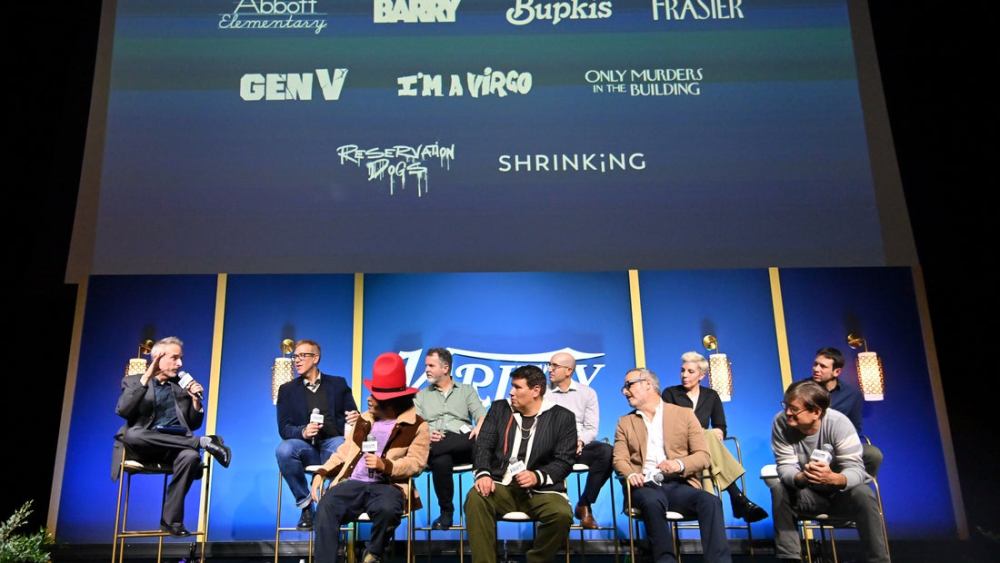‘Barry,’ ‘Only Murders,’ Other Comedy Writers on Humor and Emotion
What is a TV “comedy” in 2023? In an era of blurred genres, it’s not so cut and dry anymore. Opening Variety’s “A Night in the Writer’s Room,” Variety’s Michael Schneider asked the nine comedy writers on stage to raise their hand if their show features a death. Most did. He followed up by asking, how many of those deaths were murders?
Many kept their hands up high — but holding his hand the highest was “Only Murders in the Building” co-creator John Hoffman (“Murder,” after all, is in his show’s title!) “I feel like that’s the beauty of [comedy], that you can kind of do anything … pick a world, be specific about it, be stupid about it, and then you’re good,” Hoffman said of the ability now on television to stretch the definition of comedy.
“It takes a lot of work to subtract comedy from real life,” echoed Boots Riley (“I’m a Virgo”) in his comparison of comedy and drama, the latter of which he feels is comparatively more straightforward.
As for what makes good comedy, many of the panelists agreed that it was about striking a balance between humor and emotion — and not being afraid to shy from more serious emotions.
“I love the saying that humor is a gateway emotion,” said Chris Harris (“Frasier”). “I think there’s something very powerful in terms of connecting with the audience first through laughter, and that’s how you get them to care about these characters.”
“It’s a catharsis, both the comedy and the tears,” Migizi Pensoneau (“Reservation Dogs”) added.
In relation to his work on “Bupkis,” Judah Miller expressed that, after the pilot (which features some wild moments at the hand of star Pete Davidson), the writers wanted to elevate the comedy of the show by showing that it wasn’t just about laughs.
“The most unexpected thing was to take ourselves really seriously and do something really dramatic just to show that we could make that move,” Miller remarked.
Duffy Bordreau (“Barry”) added, “We just try to lead with the emotion of it, and just try to take these situations and these people and all this driving emotion behind all this terrible behavior and try to live in it and experience it and laugh at it … pain and comedy to me aren’t that separate. [Comedy] is a coping mechanism in a weird way.”
“I think ‘Barry’ worked out really well for a lot of writers on the show because it was a way to process a lot of stuff,” Bordreau joked.
Michelle Fazekas (“Gen V”) described the impact of the recent Hollywood strikes on writing: “We had the strikes, so we had six weeks of the room, and then we went on strike, and then we came back five months and were like, ‘What is this show? What did we talk about?’”
That made it more important to focus on the emotional core, rather than the details of specific events.
“We had literally zero days in the room before we started Season 3,” said Justin Halpern (“Abbott Elementary”). That meant that, along with “Abbott Elementary” creator Quinta Brunson, the writers had to focus on the key questions.
“‘Where were [the characters], where logically would we go, and then let’s talk about the way we get there,” Halpern elaborated.
Still, there’s a benefit in having not too much direction.
“What I think is really cool is sometimes you need a slap in the face of a show like ‘Abbot,” remarked Bill Lawrence (“Shrinking”). “One of the coolest things for me is I’m seeing talented young men and women not giving a shit about where the show goes.”


